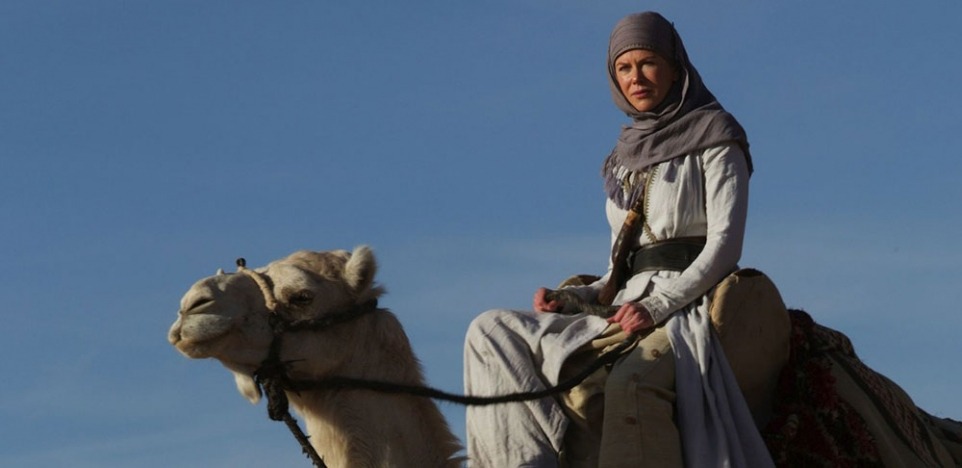"I have never met anyone who didn't at least once feel the lure of the road and the call of the distant spaces. Wanderlust, the urge for adventure, the desire to know what is over the next hill are like echoes in the backs of our minds that speak of sounds not quite heard and places not quite seen. . . .
"I believe you should listen to these echoes when you are young. Take chances and follow the voices that call you to distant places. Live, if only for a short time, the life of a traveler. It is a life you will always cherish and never forget."
— Kent Nerburn in Letters to My Son
In his first narrative film in six years, German writer and director Werner Herzog has chosen to focus on the exotic and extraordinary life of British explorer, scholar, archaeologist, and political analyst Gertrude Bell (1868-1926). She had major input when the boundaries of the countries in the Middle East were set by the British. She bequeathed to the world a keen understanding of the strange Bedouin world of the desert, the Islamic practice of hospitality, the rivalries among tribal chiefs, and the bloody politics of British colonialism.
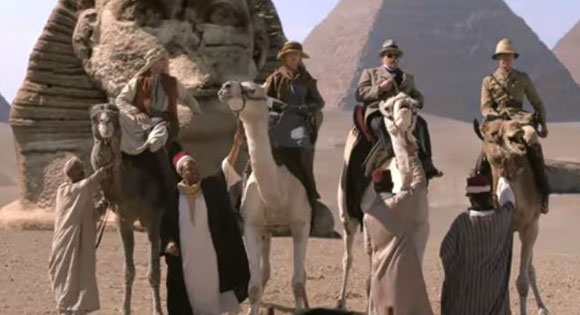
We first meet Gertrude Bell (Nicole Kidman) as a restless and very smart young woman who has graduated from Oxford where she won the equivalent of a first-class degree in history. Her father, one of the richest men in Britain, arranges a position for her in Tehran. But Gertrude is interested in the entire region. She is able to escape the constraints of her gender and travel widely exploring and mapping the desert areas of the Middle East. Her life there and nonstop work for the next 28 years earns her the name "Queen of the Desert."
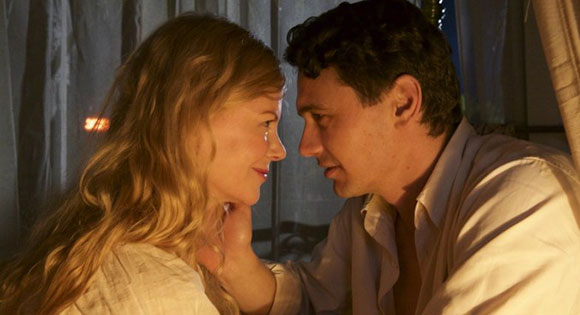
This polymath impresses as a world traveler, adventurer, historian, diarist, photographer, archaeologist, poetry lover, and cross-cultural pioneer. She follows her heart's desire when she falls in love with Henry Cadogan (James Franco), an embassy diplomat in Teheran who turns out to be her soulmate. She accepts his marriage proposal, but her father objects. This usually independent spirit returns home to change her father's mind and while she is gone, Cadogan dies. Returning to the East, she declares in her diary: "For the first time in my life, I know who I am. My heart belongs to no one now but the desert."
Bell acquires the services of a trustworthy guide (Jay Abdo) and begins a series of dangerous exploration into many desolate areas. "The deeper we immerse ourselves into the desert, the more everything seems like a dream," she writes. It is her reverence for this arid wilderness which charms the Turkish military leaders, nomadic warriors, and cultured sheiks she encounters on her travels. She learns about and respects their cultures and in turn benefits from their practice of hospitality.
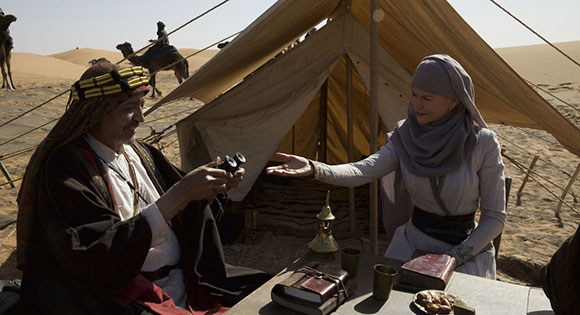
In her efforts to map Iraq and to chart the political situation there, Bell meets T.E. Lawrence (Robert Pattison), another man on his own private quest during these volatile times. They share a passion for the desert.
Her uniqueness, fearlessness, and inner beauty enchants Major Charles Doughty-Wylie (Damian Lewis), the British Consul General in Damascus.
Although married, this ardent Englishman vows to leave his wife and wed Bell. They exchange love letters for two years and then, in one of the most poignant scenes in the film, she learns of his death at a public gathering; she drops her glass of wine, breaks down in tears, and slowly staggers out of the room.
"The desert is a place of truth, and that implies that it is invariably experienced as a place of testing. The desert exposes our vulnerabilities. It brings to the surface the fears that are buried deep within ourselves. It can take us to the edge of all that we understand by normality, by sanity."
— John Moses in The Desert: An Anthology for Lent
Gertrude Bell surrenders herself to the desert and there she is tested. Her vulnerabilities are exposed and she must call upon her fearlessness to carry her through numerous dangerous encounters.
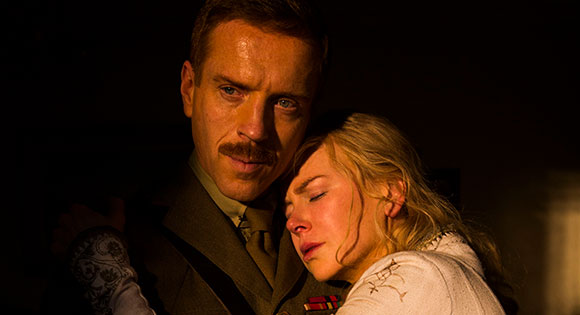
We sense that the prolific German director Werner Herzog and actress Nicole Kidman understand Gertrude Bell's wanderlust. Their presentation of her excursions take us to the edge of what we understand as normality. How on earth, in her day, could she do what she did? Given the opportunity, would we do the same? Bell's desert explorations bring us to a close encounter with the ample mysteries of our lives and the choices we have made in search of adventure.
